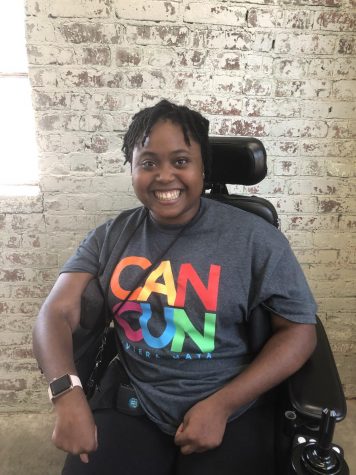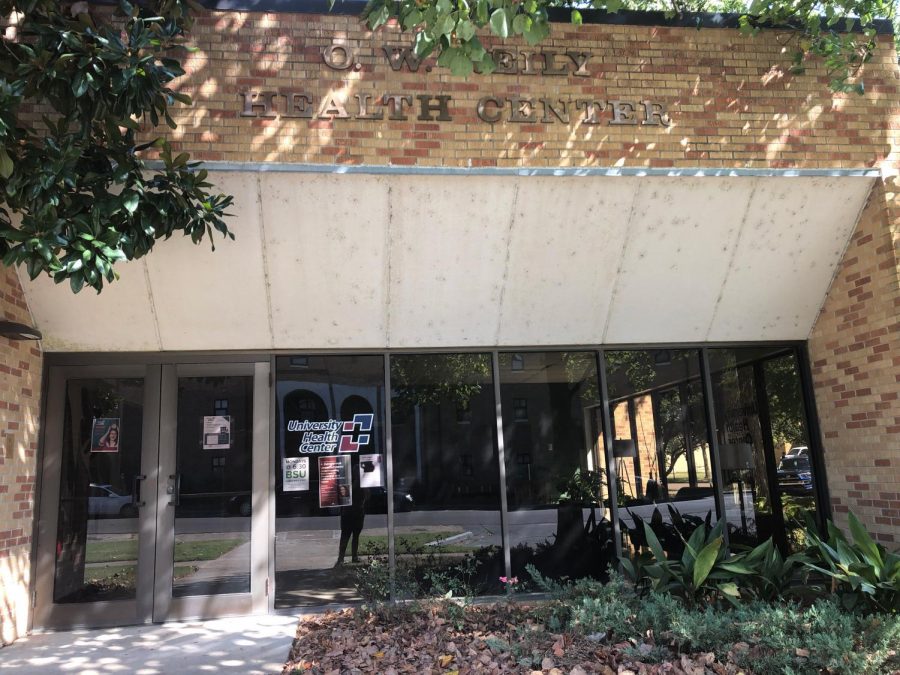ACCESS ACCESSIBILITY
How Accessible is DSU?
Dr. Richard Houston has been the Americans with Disabilities Act Coordinator for Delta State University for over 10 years and plans to continue to improve accessability on campus.
Dr. Houston says that in the next five years he hopes, “Every new addition, every new upgrade or every new remodel would take into account that this building is accessible and that it has accessible bathrooms and accessible classrooms.”
“I think that it’s just a continuous improvement of what’s already occurred,” he adds.
Senior Loyce Washington, a wheelchair user, defines accessibility as “[having] peace of mind.”
According to Washington, accessibility is something that not a lot of students know about, and because they don’t know about it, it’s not talked about as often as it should be.
Washington believes heightened awareness can get people, both with and without disabilities, involved in changing the environment and the rhetoric around campus accessibility.
According to Washington, people become more aware of campus accessibility issues or concerns through people with accessibility issues or concerns. She suggests asking for help or just starting a conversation.
“Take for example, the button that opens up the doors of the union; it rarely works, and if on the off chance it does work, it does not open up all the way to get my chair through the door” Washington explained.
“I hope that in the future accessibility issues or concerns like the doors to the union get addressed further, and the only way that can happen is by asking for help with opening it therefore, creating a dialogue around it,” she said.
While there is no official campus committee to handle accessibility concerns on campus, Dr. Houston says, “We have had local representation to do this very thing.”
Houston adds, “Getting an official committee is possible. There are several entities that would be involved with those kinds of things, such as the department of finance and the maintenance department; they tend to be the ones who are going to make the changes.”
Most of all, Dr. Houston says, “the input of a group of our disability students especially with access, [is important] because it is a federal thing.”
According to Dr. Houston, there are not many students on campus who use wheelchairs, but there are a number of students with low mobility. These students can walk, but have difficulties getting around due to issues such as stamina.
Dr. Houston said, “For example, if a student is going from one dorm, Blanset hall which is probably one of the furthest away all the way to Ewing they take a long time to do that, yet they don’t have a wheelchair or they don’t have a scooter.”
“So, the parents of this student initially contacted us about providing transportation, well we don’t provide transportation for other DSU students, where some of the larger universities they may have a bus route so, somebody could literally get on the bus at Blanset hall and eventually get dropped off in front of Ewing. “
He continues, ”we’ve had other students in the past that would commute to campus and then they had a lift that would get it out of the trunk or their car and then they would take it to class. But these individuals could walk, so often what they would do is they would plug them in here at the campus center and then they would just come back the next day and drive/ride to their class.”
He further suggests that education from the potential committee could ease new student’s anxiety “For example, if a new student, let’s say who is in a wheelchair, they may eventually find [all kinds] of things [elevators, sidewalks, decluttered classrooms] that are accessible, but unless they are actually shown they may have to just stumble across them.”
He continues, “For example, the elevator in the back of the post office is the primary disability elevator in that building, but yet people do not even know that it’s back there.”
Houston suggests “If someone could educate students or if there was some sort of committee that could show them where things like this are, then it could make their transition easier.”

Casada Ray “Sada” is a senior at Delta State University who plans on getting a major in English and a minor in Spanish. She is 22 years old and is...



